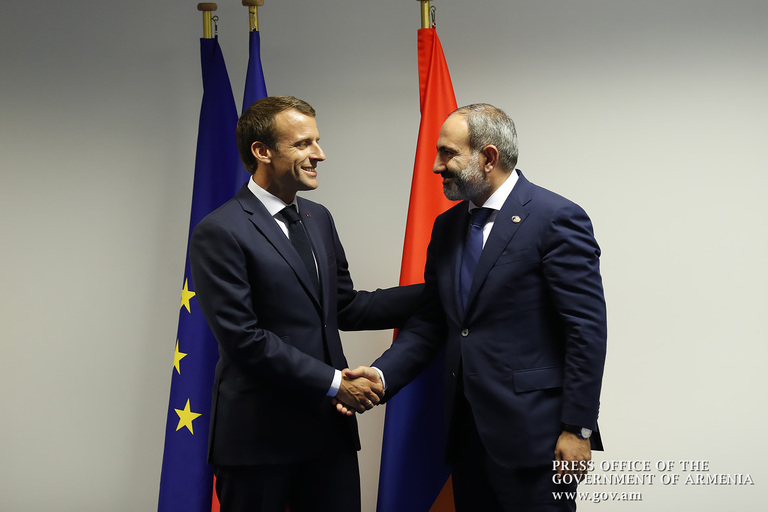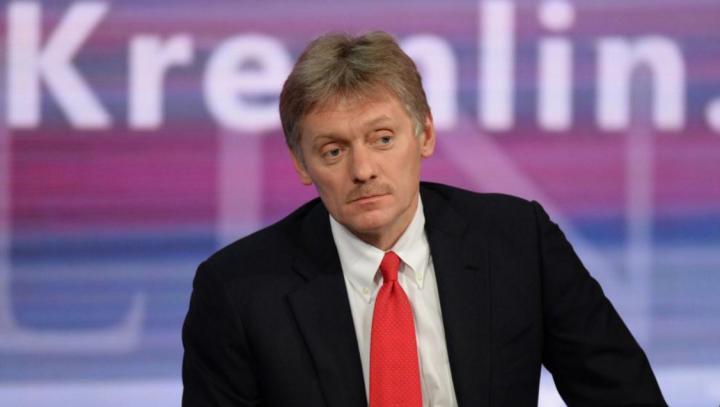It is already the ninth day that Azerbaijan has blocked the only road connecting Artsakh to Armenia. On December 12, a group of Azerbaijanis closed the Shushi-Karin section of the Stepanakert-Goris highway for environmental reasons. Hundreds of citizens, including minors, cannot return home. The transport connection of the villages Lisagor, Mets Shen, Hin Shen, and Yeghtsahogh of the Shushi region with the capital of Artsakh, Stepanakert, has been interrupted.
Although famine has not started in Artsakh, there is a shortage of some products, such as potatoes, dairy products, and baby food. In addition, it is not clear how long the road will remain closed and how long Artsakh can withstand the blockade.
What is the World Food Program?
Hakob Chagharyan, the former adviser to the RA Prime Minister, made a Facebook post two days ago, noting that the World Food Program of the United Nations (UN) provides food to people like those in Artsakh.
The World Food Program provides food to people in areas that have food problems due to war, conflict, climate change, or other reasons, and where hunger prevails.
“60 percent of the world’s hungry live in conflict-affected zones, which is the root cause of 8 of the 10 worst hunger crises (such as Yemen, South Sudan, the Democratic Republic of Congo, and Syria),” it’s mentioned on the website of the organization.
The website of the World Food Program (hereinafter WFP) states that WFP supplies vital food to people trapped or displaced by military operations, wherever they are. “With the help of local partners, we reach those in need even in the most remote areas, using all-terrain vehicles and dropping food from airplanes when all other routes are closed.”
Hakob Chagharyan noted in his post: “In case of the hourly threat of encirclement of Artsakh in Armenia, an aircraft or aircraft working under the auspices of the United Nations should be on duty at all times.”
WFP collaborates with governments
The main partners of WFP are governments. The organization says it can provide food aid and, in some cases, technical and logistical services, but its projects always require the full support and involvement of governments: “Ultimately, it is the national government that should ask the WFP to intervene in emergency situations or development projects, so the work of the Program must be in line with the national picture.”
And in exceptional circumstances, when, for example, there is a crisis in a country and the authorities have lost control over their territory, WFP can provide assistance without the invitation of the government, at the special request of the UN Secretary-General.
There are also well-known cases when the governments themselves turned to WFP for support. The Egyptian government, for example, turned to the organization to support Syrian refugees with food. The Turkish government also applied to the program to support the Syrian refugees.
The experience with Armenia and Azerbaijan
In a conversation with Infocom, Hakob Chagharyan mentioned that an alarm should go to the WFP about the situation in Artsakh. According to him, the applicant can be Artsakh or another government, for example, the RA government.
“My hopes that Armenia will apply are very low,” says Hakob Chagharyan. According to him, he is currently holding discussions with the authorities of Artsakh in order to obtain the authority to apply to the United Nations on behalf of the government of Artsakh.
WFP has representative offices in many countries, including Armenia. After the 44-day war, the structure provided support to the people who moved to the Republic of Armenia as a result of the war.
It is interesting that in 2020, after the war, the WFP announced that it aims to provide support to “residents affected by the war in the Republic of Azerbaijan”. The structure meant the residents of the Republic of Artsakh.
In its 2020 publication, WFP noted that “the UN does not have a mandate in the affected region, but is coordinating work with partners to assess needs and support any voluntary return processes to war-affected areas.”
“The [UN] Emergency Relief Coordinator sent a note to the Permanent Representative of the Republic of Azerbaijan to the UN requesting access to Nagorno Karabakh to conduct a UN assessment of the affected area,” WFP noted.
The organization also announced that it will work with the government of Azerbaijan to provide access to the population of the affected areas. However, there are no publications on the WFP website about whether this aid has finally reached the people of Artsakh.
Can WFP help the blocked Artsakh?
To the question of whether in case an application for food aid to Artsakh is sent to WFP, Azerbaijan will allow the aid to arrive, Hakob Chagharyan answers: Azerbaijan cannot refuse to allow it.
He remembers that he himself once worked within the framework of that program and delivered aid to Darfur, which is in the west of Sudan, on the border with Chad.
In Darfur, a rebellion against the government started years ago because of the treatment of the local non-Arab population (you can read more about the conflict here).
Hakob Chagharyan remembers that the president of Sudan, who is not known for his humanism, did not even try to prohibit the provision of assistance to the people of Darfur.
“No one goes against the UN. With this, you prove that you commit genocide, and with this, you become a terrorist country. People live there, that’s a fact. People need to be fed,” says Hakob Tzhagharyan, adding that in the same way, Azerbaijan cannot help reach Artsakh.
He does not hope but he is sure that with the appropriate application and the work of the MFA, the case can be solved.
Infocom reached out to the Foreign Ministers of the Republic of Armenia and the Republic of Artsakh to find out if they have reached out to the World Food Program to assist Artsakh if needed. The RA MFA asked to send a written request, the answer to which we will publish as soon as we receive it. The Ministry of Foreign Affairs of the Republic of Azerbaijan did not comment on the issue, stating that if there is information, they will publish it.
The main photo is from the WFP Facebook page
Anna Sahakyan

